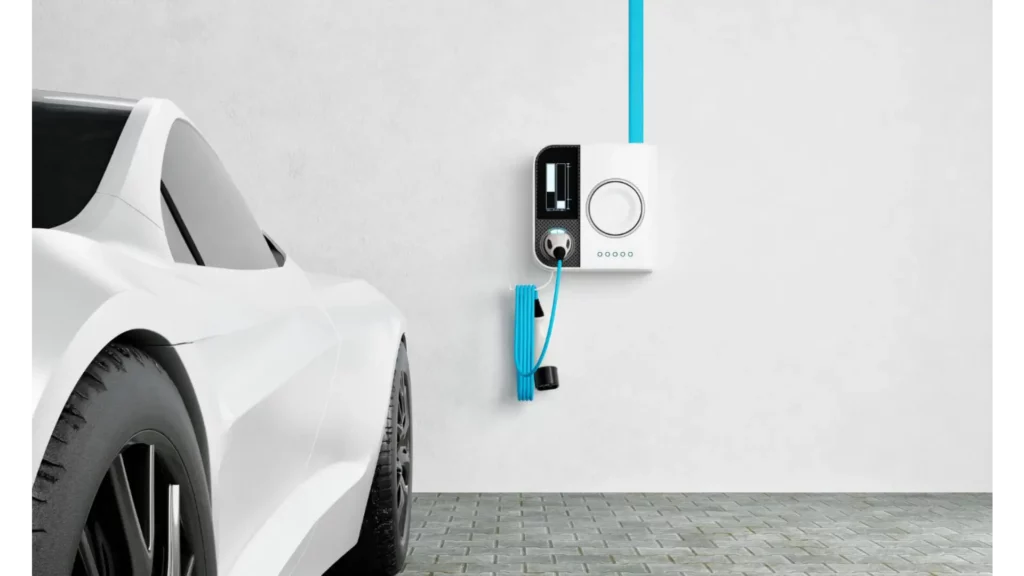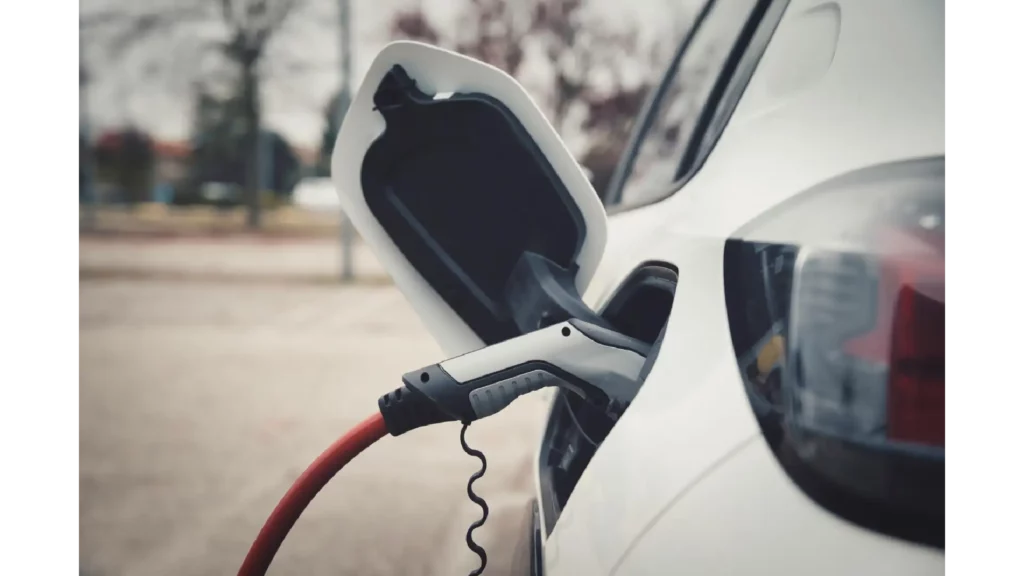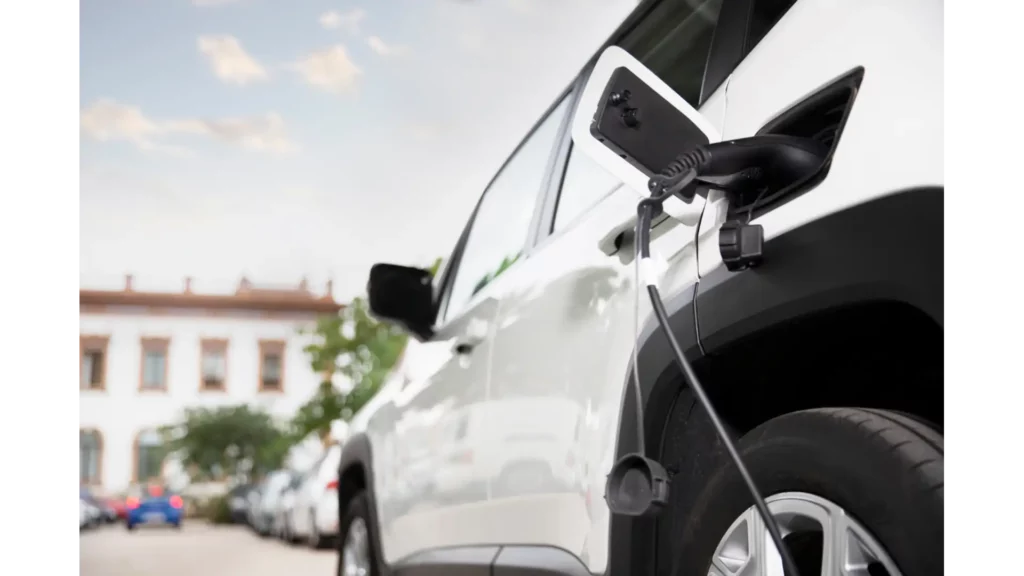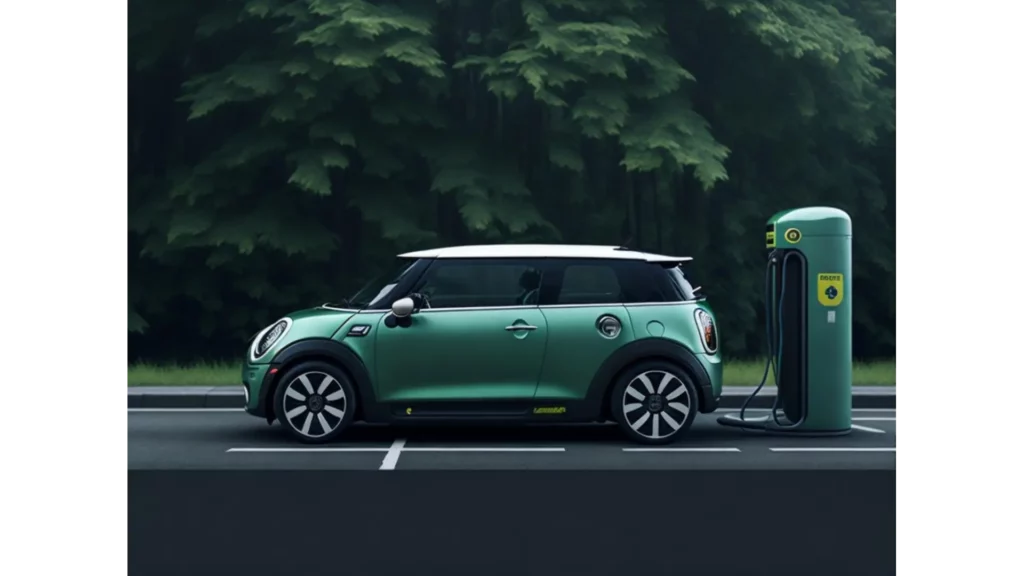The electric vehicle (EV) market in Colorado is accelerating at a rapid pace, reflecting broader national and global trends towards sustainability and innovation in transportation.
As consumers, policymakers, and businesses continue to embrace electric vehicles, Colorado stands out as a leader in the Electric Vehicle evolution.
This article dives deep into the burgeoning Colorado Electric Vehicle market, examining its growth, the driving factors behind its popularity, regulatory frameworks, and what potential buyers can expect in the future.
Understanding Colorado Electric Vehicle Market
Colorado's commitment to reducing carbon emissions has made it a fertile ground for the adoption of electric vehicles.
The state's incentives, coupled with growing consumer awareness about the benefits of electric vehicles, have spurred significant growth in this sector.
Understanding the dynamics of the Colorado Electric Vehicle market is essential for anyone interested in the future of transportation, environmental sustainability, or technological innovation in the automotive industry.

Why Colorado is Leading in Electric Vehicle Adoption
Supportive State Policies and Incentives
One of the key drivers behind the growth of the Colorado Electric Vehicle market is the state’s supportive policies. Colorado offers various incentives that make EVs more attractive to consumers, including tax credits, grants, and rebates.
These financial incentives reduce the upfront cost of EVs, making them competitive with traditional gasoline-powered vehicles.
Infrastructure Development
Infrastructure development has been another crucial factor in the adoption of electric vehicles in Colorado.
The state has been proactive in expanding its network of EV charging stations, ensuring that EV owners can find convenient, reliable charging options.
This expansion not only alleviates range anxiety but also positions Colorado as a hub for EV tourism, encouraging electric vehicle use across both urban and rural areas.
Environmental Awareness and Community Initiatives
Colorado's population has a strong environmental consciousness, which drives interest and investment in cleaner technologies like electric vehicles.
Local communities across the state have launched initiatives to promote the use of electric vehicles, including community-led charging stations and educational programs that highlight the benefits of EVs over traditional cars.

Benefits of the Colorado Electric Vehicle Market
The Colorado Electric Vehicle market offers numerous advantages that are reshaping transportation in the state. Here's a detailed list of these benefits:
- Reduced Carbon Footprint: Electric vehicles produce zero direct emissions, which significantly reduces the overall carbon footprint of transportation in Colorado, aligning with state goals to combat climate change.
- Lower Operating Costs: EVs are cheaper to operate compared to gasoline vehicles. They have fewer moving parts, which lowers maintenance costs, and electricity is generally cheaper than gasoline.
- State Incentives: Colorado provides several financial incentives such as tax rebates and credits for EV purchasers, making it economically attractive to switch from a conventional to an electric vehicle.
- Improved Public Health: Reduced emissions from electric vehicles decrease air pollution, which can lead to better public health outcomes. This is especially significant in urban areas where traffic congestion often leads to higher pollution levels.
- Energy Independence: By shifting away from fossil fuels and towards electricity, which can be produced from renewable sources, Colorado can reduce its dependence on imported oil and enhance its energy security.
- Increased Property Values: Areas with good EV charging infrastructure have been noted to experience increases in property values, as accessibility to charging solutions adds to real estate attractiveness.
- Innovation and Job Creation: The growing EV market fosters innovation and creates new jobs in technology, manufacturing, and service sectors related to electric vehicles and renewable energy.
- Noise Reduction: Electric vehicles operate much more quietly than their gasoline or diesel counterparts, contributing to less noise pollution and a more pleasant environment.

Understanding Colorado Electric Vehicle License Plates
A unique aspect of owning an electric vehicle in Colorado is the distinct license plate issued for these vehicles. The Colorado electric vehicle license plate not only allows the state to track the adoption of EVs but also provides EV owners with various benefits.
For example, vehicles bearing the Colorado electric vehicle license plate often qualify for reduced rates on toll roads and can use HOV lanes regardless of the number of passengers.
This initiative encourages more drivers to consider electric vehicles by offering tangible benefits that improve daily commuting experiences.
Exploring the Colorado Electric Vehicle Market: Key Segments and Players
The Colorado Electric Vehicle market is diverse, encompassing a wide range of models, from sedans and SUVs to trucks and buses.
Major automakers, including Tesla, Chevrolet, and Nissan, have been pivotal in supplying the Colorado market with a variety of electric vehicles suited to different consumer needs and preferences.
Growth Trends and Market Analysis
Statistical analysis shows a robust upward trend in the adoption of electric vehicles in Colorado. Sales figures and registration data indicate that more Coloradans are choosing EVs every year, outpacing the growth rates seen in many other states.
This section could delve deeper into the numbers, examining yearly growth, market penetration, and forecasts for future expansions.
Consumer Behavior and Preferences
Understanding consumer behavior is key to analyzing the Colorado Electric Vehicle market.
Surveys and studies on consumer preferences help illustrate why Coloradans are moving towards electric vehicles, including factors such as environmental concerns, technological interests, and economic incentives.

Pros and Cons of the Colorado Electric Vehicle Market
Pros of Electric Vehicles in Colorado
- Environmental Benefits: Electric vehicles significantly reduce greenhouse gas emissions and pollutants, helping to preserve Colorado's air quality and natural environment.
- Economic Incentives: Colorado provides tax credits, rebates, and grants for EV purchases, making it economically beneficial for consumers and stimulating local economic growth through investments in technology and renewable energy.
- Energy Independence: Electric vehicles help reduce dependence on imported oil. Colorado can utilize its abundant renewable resources like solar and wind for electric power, enhancing energy security and price stability.
- Innovation and Technological Advancement: The focus on electric vehicles spurs technological development and innovation within the state, positioning Colorado as a leader in the advanced automotive industry.
- Reduced Operating Costs: Electric vehicles typically cost less to operate than gasoline-powered cars.
- Quiet Operation: EVs are much quieter than traditional vehicles, which reduces noise pollution. This feature is particularly beneficial in urban areas, contributing to a more peaceful environment.
- Increased Resale Value: As demand for electric vehicles continues to grow, the resale value of EVs has begun to increase.
Cons of Electric Vehicles in Colorado
- High Initial Purchase Costs: Electric vehicles often have higher upfront costs compared to traditional vehicles, which can be a barrier for many potential buyers, despite the possibility of long-term savings.
- Charging Infrastructure Still Developing: Colorado's EV charging network is improving but remains sparse in rural areas, which can deter potential EV owners concerned about range and convenience for long-distance travel.
- Battery Issues and Performance in Harsh Weather: In cold climates, EV batteries may perform less efficiently, reducing vehicle range.

The Future of the Colorado Electric Vehicle Market
As Colorado advances into the future, its Electric Vehicle (EV) market is poised for significant growth, driven by robust support from state policies, technological innovations, and an expanding charging infrastructure. Here’s a concise look at what we can expect:
- Government Support and Incentives
Expect continuous backing from the Colorado government, including tax breaks and increased rebates for EV purchases, which will likely boost consumer adoption of electric vehicles.
- Charging Infrastructure Expansion
A crucial factor for future growth, Colorado plans to significantly increase the number of public EV charging stations, particularly in rural areas, to eliminate range anxiety for EV owners.
- Technological Advances
Advancements in battery technology will enhance vehicle efficiency, offering longer ranges and reduced charging times, making EVs more appealing and practical for Colorado residents.
- Diverse EV Options
The market will see a wider variety of EV models, including SUVs, trucks, and commercial vehicles, as more automakers enter the EV space, catering to a broader audience.
- Renewable Energy Integration
Colorado's EV market will likely integrate with renewable energy sources, promoting the use of solar-powered charging stations and encouraging homeowners to adopt solar panels for home EV charging.
- Smart Mobility and Autonomous Vehicles
Investments in smart technology and autonomous vehicles will optimize traffic flow, enhance safety, and potentially transform urban mobility, aligning with Colorado’s forward-thinking transportation planning.
- Legislative and Environmental Goals
Anticipate legislative changes to support stricter emissions standards and greater EV adoption, including mandates for electric vehicle fleets in public services and new developments.
- Economic Impact
The growth of the EV market is expected to positively impact Colorado's economy, creating jobs in manufacturing, infrastructure development, and maintenance services, further incentivizing local support for the EV sector.
Frequently Asked Questions (FAQs) About the Colorado Electric Vehicle Market
What are the specific tax incentives for purchasing an electric vehicle in Colorado?
Colorado offers several tax incentives for electric vehicle buyers, including state tax credits that can significantly reduce the upfront cost of purchasing an EV. The exact value of these credits can change, so it's advisable to check the latest details on the Colorado Department of Revenue's website or consult with a tax professional.
How does Colorado support electric vehicle charging infrastructure?
The state has invested in expanding its network of public charging stations, with a focus on both Level 2 and DC fast chargers. This expansion is supported by state grants and partnerships with private entities. Colorado's Charge Ahead Colorado program, for instance, offers grants to support the installation of EV charging stations at workplaces, multi-family residences, and other strategic locations.
Are there any local Colorado EV brands or manufacturers?
While Colorado is not home to major EV manufacturing plants, several startups and smaller companies are involved in various aspects of the electric vehicle industry, including component manufacturing and software development for EV technologies.
What are the most popular electric vehicle models in Colorado?
Popular EV models in Colorado include the Tesla Model 3 and Model Y, Chevrolet Bolt, and Nissan Leaf. The popularity of specific models can vary based on factors such as price, availability, and specific consumer preferences for features such as range and charging speed.
How is Colorado addressing range anxiety among potential EV buyers?
Colorado is actively working to alleviate range anxiety by increasing the number of charging stations statewide. The state's strategic plan includes placing chargers at key locations to ensure that drivers can travel across the state without the fear of running out of battery power.
Can electric vehicles withstand Colorado's winter conditions?
Electric vehicles can perform well in winter conditions with proper maintenance. Most modern EVs are equipped with battery thermal management systems that help maintain battery efficiency in cold weather. It's also advisable for EV owners in Colorado to use winter tires and pre-condition their vehicles while plugged in to optimize battery usage.
What are the environmental impacts of switching to electric vehicles in Colorado?
Switching to electric vehicles significantly reduces greenhouse gas emissions, particularly if the electricity used for charging comes from renewable sources. Colorado's energy mix is increasingly incorporating renewable energy, which enhances the environmental benefits of switching to EVs.
How does owning an electric vehicle in Colorado affect insurance rates?
Insurance rates for electric vehicles can be slightly higher than those for comparable gasoline vehicles due to the higher value of EVs and the cost of repairing advanced technologies. However, many insurance companies are starting to offer special rates or discounts for electric vehicles as they become more mainstream.
What future developments are expected in the Colorado Electric Vehicle market?
The market is expected to grow with technological advancements such as better battery technology and increased autonomous driving features. Colorado is also likely to continue enhancing state incentives and infrastructure development to support this growth.
Conclusion: The Road Ahead for the Colorado Electric Vehicle Market
The Colorado Electric Vehicle market is poised for continued growth and innovation. With state support, robust infrastructure, and a community that values sustainability, Colorado is leading the charge in the electric vehicle revolution.
As technology advances and consumer attitudes shift further towards eco-friendly solutions, the integration of electric vehicles into Colorado’s transportation landscape will only deepen.
By exploring the various facets of the Colorado Electric Vehicle market, it is clear that the state is not just participating in the EV trend but is setting the pace for others to follow. The commitment to a cleaner, more sustainable future is evident, and the benefits of this shift will resonate well beyond the borders of Colorado.

